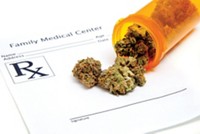Advertisement
Grab your lab coat. Let's get started
Welcome!
Welcome!
Create an account below to get 6 C&EN articles per month, receive newsletters and more - all free.
It seems this is your first time logging in online. Please enter the following information to continue.
As an ACS member you automatically get access to this site. All we need is few more details to create your reading experience.
Not you? Sign in with a different account.
Not you? Sign in with a different account.
ERROR 1
ERROR 1
ERROR 2
ERROR 2
ERROR 2
ERROR 2
ERROR 2
Password and Confirm password must match.
If you have an ACS member number, please enter it here so we can link this account to your membership. (optional)
ERROR 2
ACS values your privacy. By submitting your information, you are gaining access to C&EN and subscribing to our weekly newsletter. We use the information you provide to make your reading experience better, and we will never sell your data to third party members.
Environment
Drug use in Athens rose dramatically after economic crisis
by Katherine Gammon, special to C&EN
September 15, 2016
| A version of this story appeared in
Volume 94, Issue 37
In Greece, the economic situation has been dire in recent years: Unemployment is near 30%, and public spending has been slashed because of austerity measures imposed by the European Union. A new study looking at the Greek capital’s wastewater shows how the public has responded to the societal stress: The use of many legal and illegal substances—particularly antipsychotics and antidepressants—has skyrocketed since the EU bailout plan took effect in 2010 (Environ. Sci. Technol. 2016, DOI: 10.1021/acs.est.6b02417).
Nikolaos S. Thomaidis of the University of Athens and colleagues collected wastewater samples from Athens’s treatment plant for about a week each year from 2010 to 2014. Then they used liquid chromatography and mass spectrometry to screen for 148 legal and illegal drugs and their related metabolites.
The team found huge increases in the levels of antipsychotics (35-fold), benzodiazepines (19-fold), and antidepressants (11-fold), correlating with the fall of Greece’s gross domestic product and the climb in unemployment. Drugs to treat ulcers, epilepsy, and hypertension also increased. Antibiotics and nonsteroidal anti-inflammatory drugs decreased—likely because of cuts to health spending—but the researchers found a doubling in the levels of illegal methamphetamines.
All the findings suggest that the general health of Greece’s population got worse during this period—and in particular, their mental health, Thomaidis says. The data show a leveling off of some drugs, as the economic situation begins to stabilize.
Kevin V. Thomas of the Norwegian Institute for Water Research says the approach of linking wastewater with a particular societal event is novel and useful. But he warns that the correlation the researchers found doesn’t necessarily equate to causation: “You can’t definitively say whether those changes would have happened anyway.”




Join the conversation
Contact the reporter
Submit a Letter to the Editor for publication
Engage with us on Twitter